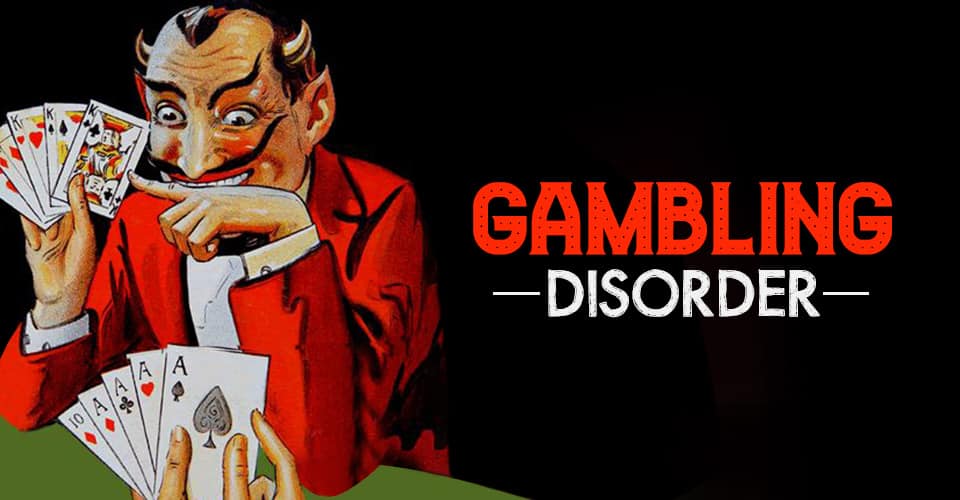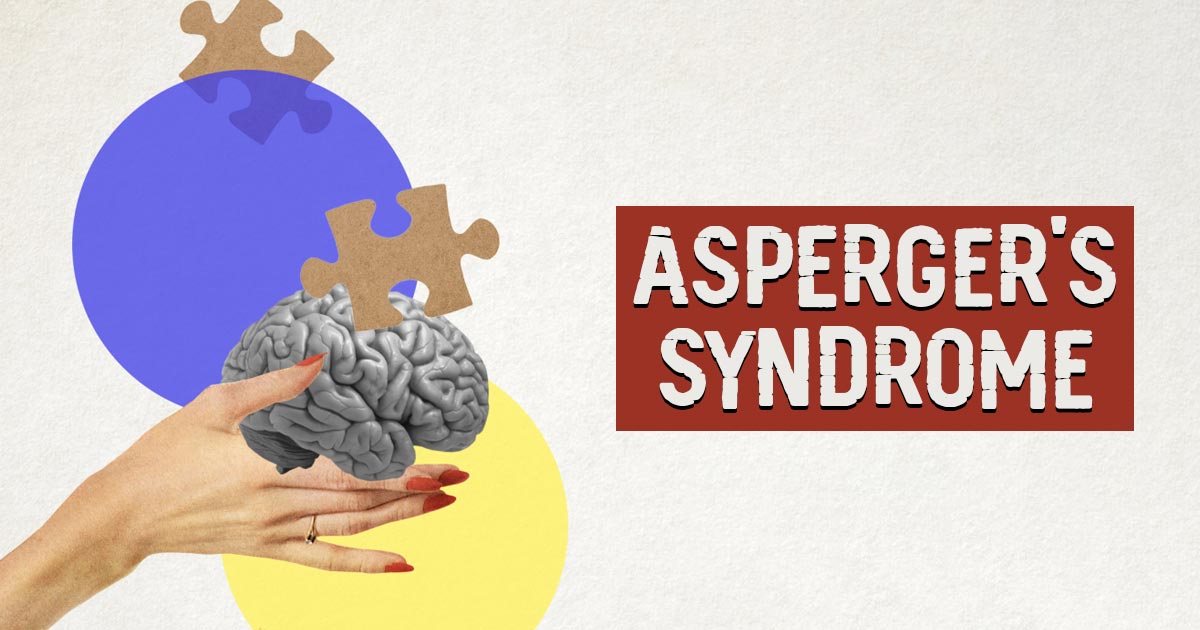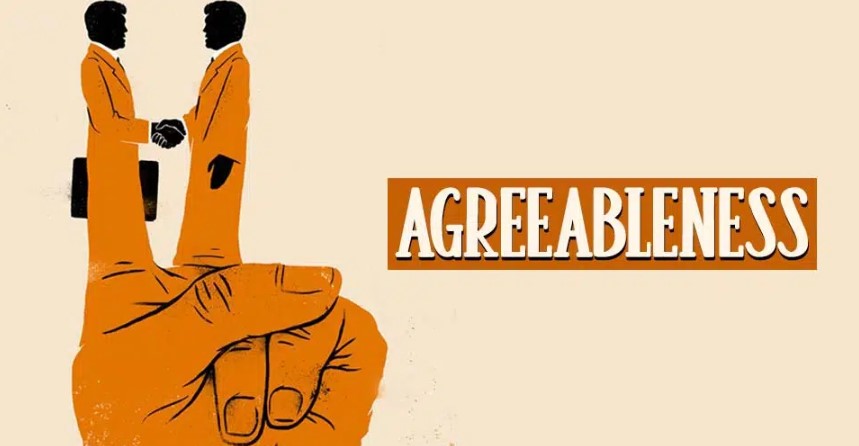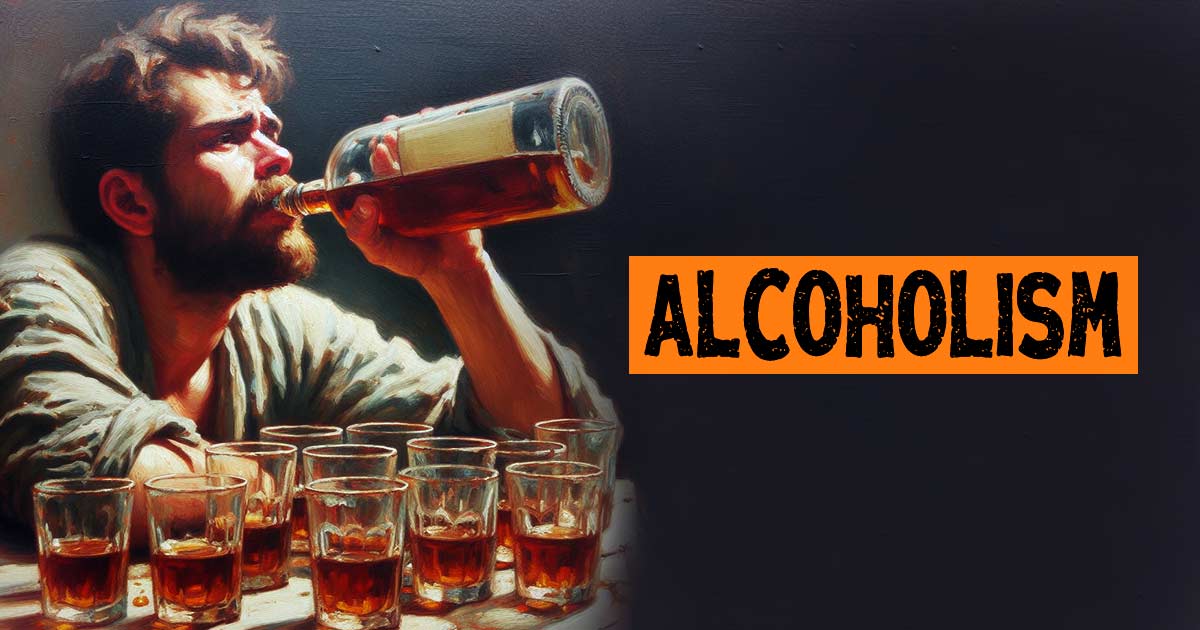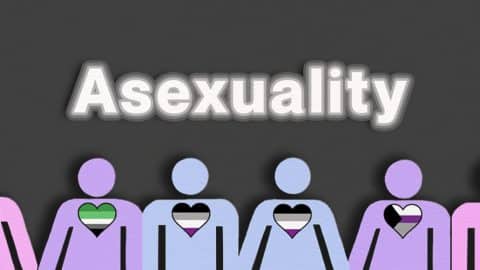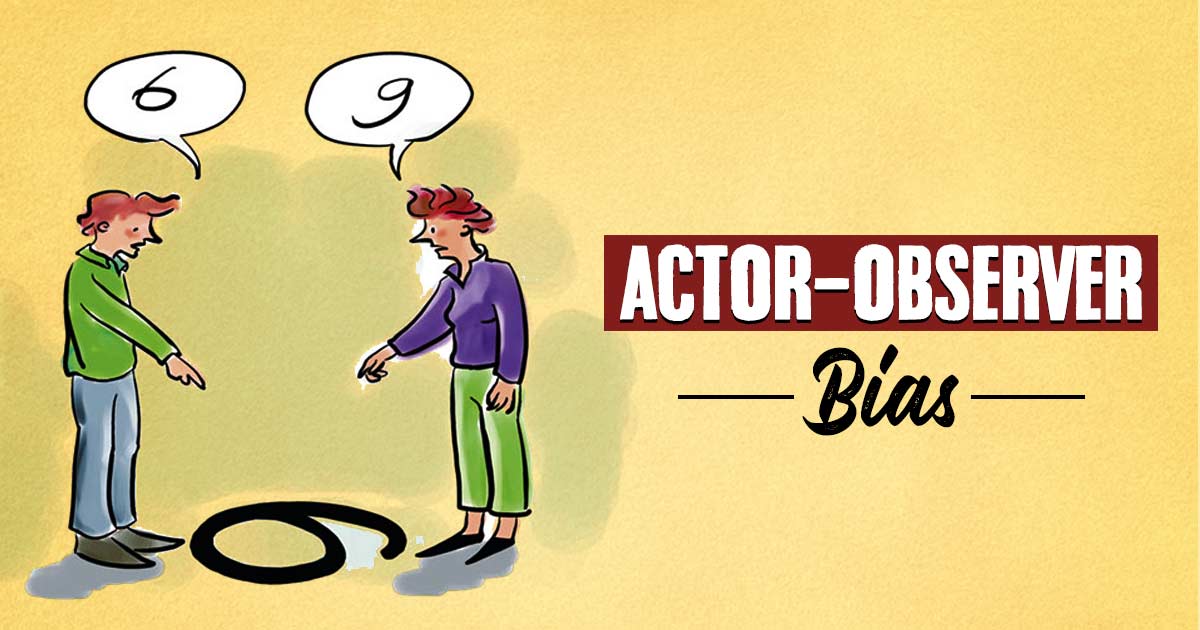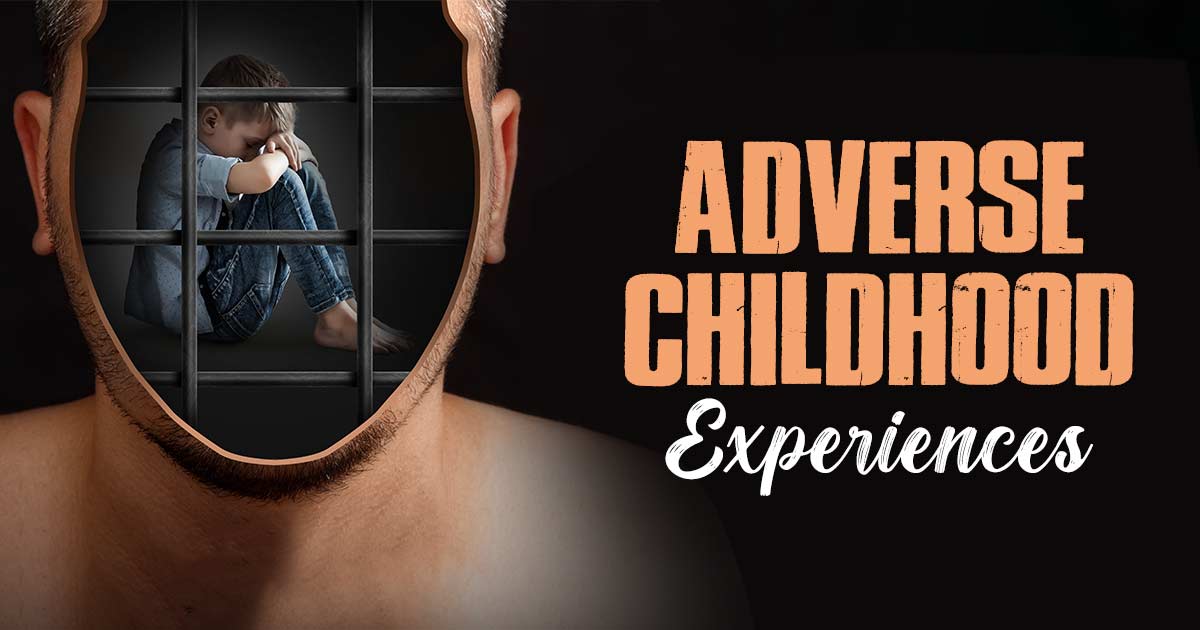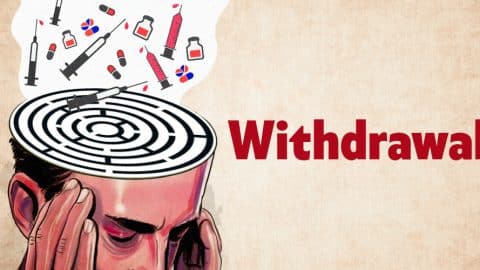Gambling disorder is the compulsive urge to engage in gambling. It is a progressive impulse-control disorder that can affect the sufferers’ families and social lives when left untreated.
What Is Gambling Addiction?
Gambling addiction or gambling disorder (GD) is an impulse-control disorder and is considered a progressive addiction that can affect the sufferers’ families and social lives. A 2009 study 1 Oei, T. P., Raylu, N., & Loo, J. M. (2019). Roles of culture in gambling and gambling disorder. Gambling Disorder, 271-295. https://doi.org/10.1007/978-3-030-03060-5_13 explains that “Gambling disorder is characterized by a persistent, recurrent pattern of gambling that is associated with substantial distress or impairment.”
Also known as pathological gambling, compulsive gambling, or gambling addiction—this condition can lead to feelings of helplessness and despondency in sufferers. Compulsive gambling can cause issues with career, finances, relationships, social life, and even legal problems.
Moreover, gambling addiction can also result in numerous negative physical and mental health issues, like:
- Stress
- Migraine
- Intestinal disorders
- Anxiety
- Depression
- Suicidal behaviors
According to the American Psychiatric Association, “Gambling disorder involves repeated problematic gambling behavior that causes significant problems or distress. It is also called gambling addiction or compulsive gambling.”
As the effects of gambling addiction can be similar to that of alcoholism, non-substance or behavioral addictions are now identified as “substance-related and addictive disorders” 2 Yau, Y. H., & Potenza, M. N. (2015). Gambling disorder and other behavioral addictions: recognition and treatment. Harvard review of psychiatry, 23(2), 134–146. https://doi.org/10.1097/HRP.0000000000000051 in the Diagnostic and Statistical Manual of Mental Disorders (DSM-5).
Some people gamble to experience thrill and excitement while others may gamble to escape from life’s problems. Gambling addiction is often associated with other behavioral or mood disorders.
Individuals having this disorder may also suffer from substance abuse, stress, depression, unmanaged ADHD, anxiety, or bipolar disorder. However, with timely identification, treatment, and prevention, individuals suffering from this condition can successfully recover and live healthier, happier lives.
Read More About Stress Here
Understanding Gambling Addiction
Gambling disorder is a condition defined by an unruly or obstinate urge to keep betting irrespective of the toll it takes on your life. It can happen to anyone irrespective of their social status. Gambling or betting can transform from an entertaining harmless diversion to a deadly obsession backed by serious outcomes.
Whether you bet on sports, roulette, poker, or slots in a casino, or at the track, a gambling problem can interfere with personal and professional life, eventually leading to financial disaster. You may even end up doing things that you could never think of doing, like suffering from huge debts or even stealing money to gamble.
If you are suffering from compulsive gambling, you won’t be able to control the impulse to gamble, overlooking the negative consequences waiting for you or your near ones.
The urge to gamble pushes you to indulge in this activity whether you’re up or down, broke or flush, and even when you know that the odds are against you. Moreover, you may hide your gambling addiction and lie to others to seek financial support.
Psychology Of Gambling Addiction
The advent of gambling disorder happens during adolescence or young adulthood, gradually manifesting itself during middle or even older adulthood. Generally, gambling addiction becomes a deep-rooted condition over the years.
However, the progression is more rapid in females than in males. Additionally, individuals suffering from this disorder follow a pattern of gambling that steadily increases in terms of frequency and amount of wagering.
The majority of sufferers have reported that there are one or two types of gambling which are problematic for them while some individuals participate in multiple forms of gambling.
The severity of gambling disorder is measured by the frequency of gambling and the type of gambling. Moreover, the amount of money invested in betting is not an accurate indicator of compulsive gambling.
Prevalence Of Gambling Disorder
The growth of gambling disorder has significantly risen across the globe over the last few years. According to research at the National Council on Problem Gambling, around 2% of Americans are affected by gambling. Moreover, around 5.77 million people 3 Columb, D., & O’Gara, C. (2018). A national survey of online gambling behaviours. Irish journal of psychological medicine, 35(4), 311–319. https://doi.org/10.1017/ipm.2017.64 in the United States had a gambling disorder that called for urgent treatment in 2012. Studies 4 Ferrara, P., Franceschini, G., & Corsello, G. (2018). Gambling disorder in adolescents: What do we know about this social problem and its consequences? Italian Journal of Pediatrics, 44(1). https://doi.org/10.1186/s13052-018-0592-8 also reveal that 0.2-12.3 % of youth meet symptomatic criteria for gambling disorder across five continents.
The disorder affects 1 to 3% of adults 5 Wardle H. (2020). The Emerging Adults Gambling Survey: study protocol. Wellcome open research, 5, 102. https://doi.org/10.12688/wellcomeopenres.15969.1 of all ages, with more men than women. It normally begins in adolescence in men and later in women. Older adults are more defenseless than other age groups, because of their dependence on fixed incomes and limited ability to recover from gambling losses.
Owing to its devastating consequences, gambling disorder has become a vital public health concern in many countries. According to the World Health Organization (WHO), males, young adults, low-income or unmarried people, and people from indigenous and ethnic minority groups are more prone to gambling addiction.
It has also been observed individuals residing in high deprivation neighborhoods and lacking education and employment are more prone to gambling addictions.
Gambling Disorder vs Bipolar Disorder
Psychology experts have observed that people who have bipolar disorder indulge in gambling a lot while they experience manic episodes. However, that is not a gambling disorder, even though the behaviors and the outcomes may look similar. But that does not mean that gambling problems occurring during mania are not as severe as gambling disorder.
However, this differentiation is made to distinguish gambling problems that develop following a pattern of addiction from those that take place during a certain phase of bipolar disorder.
One 2019 study 6 Di Nicola, M., De Risio, L., Pettorruso, M., Caselli, G., De Crescenzo, F., Swierkosz-Lenart, K., Martinotti, G., Camardese, G., Di Giannantonio, M., & Janiri, L. (2014). Bipolar disorder and gambling disorder comorbidity: current evidence and implications for pharmacological treatment. Journal of affective disorders, 167, 285–298. https://doi.org/10.1016/j.jad.2014.06.023 found that comorbid bipolar disorder (BD) and gambling disorder (GD) patients “experience a more severe course of illness and poorer treatment outcome, due to a range of clinical and psychosocial factors that collectively impede remission and recovery.”
Read More About Bipolar Disorder Here
Signs and Symptoms Of Gambling Addiction
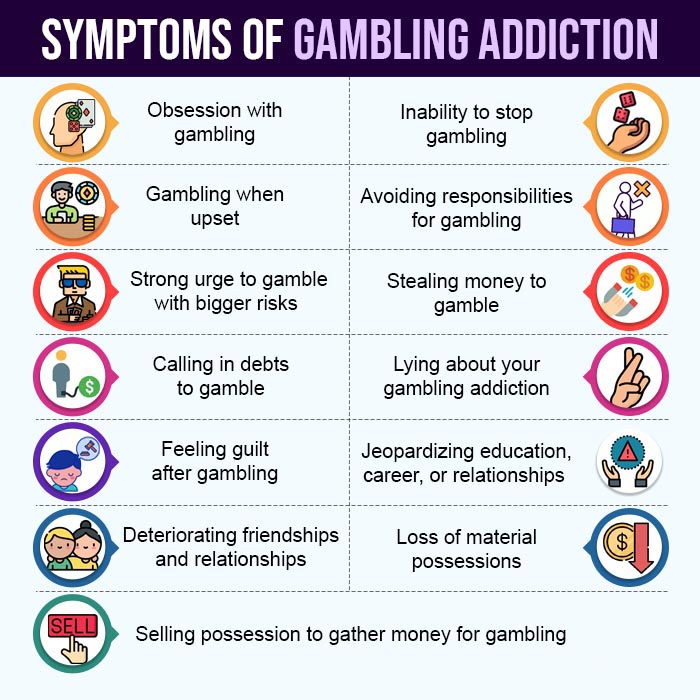
Some of the most common gambling addiction symptoms include:
- Being obsessed with gambling
- Inability to stop gambling
- Feeling anxious or annoyed when trying to control gambling
- Gambling when feeling stressed or upset
- Avoiding responsibilities or other commitments for gambling
- Strong urge to gamble with bigger risks and more money
- Selling items and possession to gather money for gambling
- Using money from daily expenses and neglecting bills
- Stealing or borrowing money to gamble
- Trying to win back money after losing it on gambling
- Depending on others to overcome financial problems caused by gambling
- Lying about your gambling addiction
- Feeling shame and guilt after gambling
- Jeopardizing education, career, or relationships for gambling
- Deteriorating friendships and relationships
- Loss of material possessions, like house, car, business, etc
A compulsive gambler can have periods when the symptoms may subside and they may not engage in gambling as much. However, it may be followed by periods of intense and severe symptoms.
Mental Health Effects Of Gambling Addiction
People with gambling disorder are often found to be alcoholic, depressed, and anxious. “Pathological gambling and alcohol use disorders frequently co-occur at greater than chance levels,” states a 2017 study 7 Tackett, J. L., Krieger, H., Neighbors, C., Rinker, D., Rodriguez, L., & Edward, G. (2017). Comorbidity of Alcohol and Gambling Problems in Emerging Adults: A Bifactor Model Conceptualization. Journal of gambling studies, 33(1), 131–147. https://doi.org/10.1007/s10899-016-9618-6 . Another 2011 study 8 Lorains, F. K., Cowlishaw, S., & Thomas, S. A. (2011). Prevalence of comorbid disorders in problem and pathological gambling: systematic review and meta-analysis of population surveys. Addiction (Abingdon, England), 106(3), 490–498. https://doi.org/10.1111/j.1360-0443.2010.03300.x found that, in problematic and pathological gamblers, certain comorbid disorders persist, such as:
- Alcohol use disorder
- Depression
- Substance use disorders
- Nicotine dependence
- Anxiety disorders
- Coronary diseases
- Cardiovascular diseases
- Antisocial personality disorder, etc.
However, with the right treatment, such problems can be prevented.
What Causes Gambling Addiction?
While some people gamble occasionally for fun, for a pathological gambler, it usually advances from occasional gambling to habitual gambling. With this development, the gambler will risk more with each passing day, resulting in critical personal life problems, financial ruin, and perhaps criminal behavior.
Experts are yet to identify the exact causes that lead to the development of compulsive gambling. However, it is believed a combination of genetic, environmental, and biological factors plays a crucial role in the disorder’s development.
Studies 9 Potenza, M. N., Balodis, I. M., Derevensky, J., Grant, J. E., Petry, N. M., Verdejo-Garcia, A., & Yip, S. W. (2019). Gambling disorder. Nature reviews. Disease primers, 5(1), 51. https://doi.org/10.1038/s41572-019-0099-7 show that gambling disorder tends to run in families, but certain psychosocial factors may also contribute to its prevalence. Although many people suffering from gambling addiction can be reliable and responsible individuals, certain factors can result in a dramatic change in their behavior.
Here are some common causes of gambling disorder:
- Loneliness
- Traumatic event or experiences
- Depression or anxiety
- Boredom
- Career-related stress
- Retirement
- Environmental factors, like easily accessible opportunities
- Coping with other addictions 10 Potenza, M. N., Fiellin, D. A., Heninger, G. R., Rounsaville, B. J., & Mazure, C. M. (2002). Gambling: an addictive behavior with health and primary care implications. Journal of general internal medicine, 17(9), 721–732. https://doi.org/10.1046/j.1525-1497.2002.10812.x
- Relaxation after a stressful day
- Seeking adrenaline rush
- Money problems
- Numbing unpleasant thoughts and emotions
Apart from these, neurological and genetic factors may also be significant contributing factors. One study 11 Limbrick-Oldfield, E. H., Mick, I., Cocks, R. E., McGonigle, J., Sharman, S. P., Goldstone, A. P., Stokes, P. R., Waldman, A., Erritzoe, D., Bowden-Jones, H., Nutt, D., Lingford-Hughes, A., & Clark, L. (2017). Neural substrates of cue reactivity and craving in gambling disorder. Translational psychiatry, 7(1), e992. https://doi.org/10.1038/tp.2016.256 found that genetics play a crucial role in gambling addiction.
The study noted that “the children of gambling addicts are at higher risk of gambling addiction themselves.” However, the researchers were yet to discover the specific brain regions attached to gambling disorder.
Gambling induces stress, depression, substance abuse, and delusional disorders—mental disorders which are progressive and have a life-long prevalence. Coupled with these mental health conditions, gambling disorder is, at times, associated with casual, long-term remissions.
Individuals fail to understand their vulnerability to developing gambling disorder post-remission. When in a break from gambling, a person might feel that he/she can control his/her urges of gambling.
For distraction, the person may even indulge in some forms of non-problematic gambling. This, however, only serves to lead him/her back to chronic gambling disorder.
Read More about Cluster B Personality Disorder Here
Risk Factors For Gambling Disorder
While people who casually indulge in gambling in the form of playing cards or wagering do not develop the disorder, certain factors are frequently associated with this condition. These include:
1. Mental health issues
People who suffer from gambling disorder often suffer from abusive behavior, personality disorders, depression, or anxiety. Compulsive gambling is also associated with mental disorders like:
- Bipolar disorder
- Substance abuse disorders
- Attention-deficit/hyperactivity disorder (ADHD)
- Obsessive-compulsive disorder (OCD), etc.
One recent study 12 Sundqvist, K., & Rosendahl, I. (2019). Problem Gambling and Psychiatric Comorbidity-Risk and Temporal Sequencing Among Women and Men: Results from the Swelogs Case-Control Study. Journal of gambling studies, 35(3), 757–771. https://doi.org/10.1007/s10899-019-09851-2 found that most people addicted to gambling “also suffer from other psychiatric conditions.” It concluded that “the association seems to be stronger for women.”
2. Age
Compulsive gambling is more common in younger and middle-aged people. Indulging in gambling activities since childhood or teenage years increases the risk of developing the disorder. However, it is equally risky if found in the older population.
3. Gender
Gambling disorder is more common in men than in women. However, women tend to start gambling later in life and may get addicted faster. Under any circumstances, gambling patterns among men and women have become increasingly similar.
4. Social influence
If someone from your family or friends has a gambling problem, then it is highly likely that you will be influenced to start gambling too.
5. Personality traits
Personality traits, like being highly competitive, impulsive, being a workaholic, restless, or getting easily bored may increase the chances of getting gambling disorder.
6. Medications
Medication used to treat Parkinson’s disease and restless legs syndrome (RLS) can also be a risk factor. Drugs like dopamine agonists come with the rare side effect of inducing compulsive behaviors, including gambling, in some people.
How Age And Gender Influence Gambling Addiction?
The addiction to gambling affects 1 to 3% of adults of all ages 13 Wardle H. (2020). The Emerging Adults Gambling Survey: study protocol. Wellcome open research, 5, 102. https://doi.org/10.12688/wellcomeopenres.15969.1 with men more affected than women. It normally begins in adolescence in men and later in women. Early diagnosis of gambling disorder is more prevalent in males than in females. Individuals who start gambling at a very young age often do so with family members or friends.
The advancement of early-life gambling disorder is associated with impulsivity and substance abuse. While some high school and college students suffering from gambling disorder grow out of it over time, for some it happens to be a lifelong problem.
Furthermore, there are age and gender variations associated with different gambling activities and the prevalence rate of gambling disorder. This form of mental condition is more common in adolescents and young adults.
While younger individuals indulge in various types of gambling, older adults are more likely to get drawn to slot machines and bingo. While the percentage of people who seek therapy for gambling disorder is low across all age groups, younger individuals are more unlikely to seek treatment.
Diagnosis Of Gambling Disorder
According to the DSM-5 diagnostic criteria 14 Substance Abuse and Mental Health Services Administration. Impact of the DSM-IV to DSM-5 Changes on the National Survey on Drug Use and Health [Internet]. Rockville (MD): Substance Abuse and Mental Health Services Administration (US); 2016 Jun. Table 3.38, DSM-IV to DSM-5 Gambling Disorder Comparison. Available from: https://www.ncbi.nlm.nih.gov/books/NBK519704/table/ch3.t39/ for gambling disorder, the sufferer must experience at least 4 of the following for one year:
- A strong need to gamble with higher amounts of money to feel the desired thrill and excitement
- Feeling anxious, irritable, or annoyed when attempting to reduce or stop gambling
- Constant unsuccessful attempts to prevent or stop gambling
- Repeated thoughts about gambling—defined by remembering past experiences, preparing for future gambling activities, and seeking new ways to obtain money to gamble
- Gambling when feeling stressed
- Chasing losses and gambling again to get even
- Hiding gambling activity by deceiving and lying
- Endangering or losing a significant relationship, job, or educational/career opportunity for gambling
- Depending on others to solve money problems caused by excessive gambling
How To Treat A Gambling Addiction
Overcoming gambling disorder can be a challenging task. Hence, it is essential to seek professional treatment. However, that does not mean that you’re weak to handle your problems. Additionally, it is important to learn that every gambler is different, thus you need a recovery program tailored specifically to suit your situation and needs.
Some of the more popular and effective gambling addiction treatment methods include:
1. Psychotherapy
Medical practitioners recommend different types of psychotherapy 15 Fong T. W. (2005). Types of psychotherapy for pathological gamblers. Psychiatry (Edgmont (Pa. : Township, 2(5), 32–39. [/mfn] to address gambling disorder. Counseling for gambling addiction includes:
A. Cognitive-behavioral therapy (CBT)
CBT concentrates on enhancing unhealthy gambling behaviors and thoughts with logic and wrong beliefs. It can also supervise you to fight gambling urges and solve fiscal, work, and relationship problems.
The therapy can also provide you with tools for coping with your obsession that will last a lifetime. According to a 2017 study 16 Challet-Bouju, G., Bruneau, M., IGNACE Group, Victorri-Vigneau, C., & Grall-Bronnec, M. (2017). Cognitive Remediation Interventions for Gambling Disorder: A Systematic Review. Frontiers in psychology, 8, 1961. https://doi.org/10.3389/fpsyg.2017.01961 , CBT is the “most widely used treatment” available for gambling disorder (GD).
Read More About Cognitive Behavioral Therapy (CBT) Here
B. “Gambler’s Anonymous” (GA) group therapy
Based on the Alcoholics Anonymous model, Gamblers Anonymous is a popular treatment method used for gambling addictions. The program involves a 12-step approach that values mutual support.
A 2016 review 17 Schuler, A., Ferentzy, P., Turner, N. E., Skinner, W., McIsaac, K. E., Ziegler, C. P., & Matheson, F. I. (2016). Gamblers Anonymous as a Recovery Pathway: A Scoping Review. Journal of gambling studies, 32(4), 1261–1278. https://doi.org/10.1007/s10899-016-9596-8 concludes that “GA is a cost-effective and widely available resource for individuals experiencing problem gambling issues, and is an accessible treatment option.” It is perhaps the most referred type of treatment for compulsive gamblers and can be especially helpful for people with low income.
C. Psychodynamic therapy
Psychoanalysis can help pathological gamblers cope with interpersonal conflicts through therapy. It can also help them manage their urges and gambling behavior. This form of therapy usually focuses on recognizing the purpose of the gambling addiction and inner conflicts.
It also helps to reduce shame and guilt related to pathological gambling. According to research 18 Rosenthal R. J. (2008). Psicoterapia psicodinâmica e o tratamento do jogo patológico [Psychodynamic psychotherapy and the treatment of pathological gambling]. Revista brasileira de psiquiatria (Sao Paulo, Brazil : 1999), 30 Suppl 1, S41–S50. https://doi.org/10.1590/s1516-44462008005000004 , “short-term psychodynamic psychotherapy, with its focus on core issues, may be particularly applicable to the pathological gambler’s need to avoid or escape intolerable effects and problems.” On the other hand, long-term therapies are administered to modify avoidant and unhealthy coping styles and defenses.
D. Family Therapy
Gambling Disorder can adversely affect family functioning. Compulsive gambling may result in domestic violence, internal conflict, divorce, etc. Family therapy can help sufferers recognize problematic behaviors and their impact on family dynamics. It can also help the gambler cope with denial associated with obsessive gambling behavior.
Studies 19 Tepperman, J. H. (1985). The effectiveness of short-term group therapy upon the pathological gambler and wife. Journal of Gambling Behavior, 1(2), 119-130. https://doi.org/10.1007/bf01019865 show that short-term group therapy involving the gambler and their spouse can be highly effective in improving marital functioning.
Moreover, marriage, career, and credit counseling can assist sufferers to work through particular issues that have been created by their gambling obsession, thereby laying the foundation for restoring their relationships and finances.
E. Behavioral therapies
These forms of therapies rely on the concept of operant theory or classical conditioning. It aims to reshape the patient’s behavior by altering their learned responses. Moreover, it decreases arousal and other rewarding sensations associated with gambling. These therapies usually involve –
- Aversion therapy
- Imaginal desensitization
- In-vivo exposure with response prevention
2. Medications
Although there are no specific medications for the treatment of gambling disorder, certain medications can help relieve the symptoms and other conditions associated with it.
Research 20 Grant, J. E., Odlaug, B. L., & Schreiber, L. R. (2014). Pharmacological treatments in pathological gambling. British journal of clinical pharmacology, 77(2), 375–381. https://doi.org/10.1111/j.1365-2125.2012.04457.x shows that mood stabilizers, serotonergic antidepressants, and opioid antagonists may be helpful. Narcotic antagonists, used for the treatment of drug addictions can also help people suffering from pathological gambling. A study 21 Grant, J. E., & Kim, S. W. (2006). Medication management of pathological gambling. Minnesota medicine, 89(9), 44–48. on medication management for gambling disorder found that antidepressants can –
- Effectively help with reducing gambling addiction symptoms
- Higher doses of antidepressants may be required for GD than for depressive disorders
- Even though the sufferer may not have anxiety or depression, antidepressants can still effectively relieve gambling disorder symptoms
3. Other programs
A. Residential Treatment and Rehab Programs
This type of treatment is suggested to a patient who is suffering from a severe gambling addiction and who is unable to avoid gambling without a constant check upon him/her.
B. Treatment for Underlying Conditions
This type of treatment is apt for individuals suffering from substance abuse or mental health problems such as depression, anxiety, OCD, or ADHD. The treatment combines gambling addiction therapy, medication, and strategies for lifestyle changes.
The symptoms of gambling addiction can sometimes look like the symptoms of bipolar disorder, hence, your doctor or therapist needs to conduct a differential diagnosis for GD before proceeding with a treatment plan.
How To Overcome Gambling Addiction?
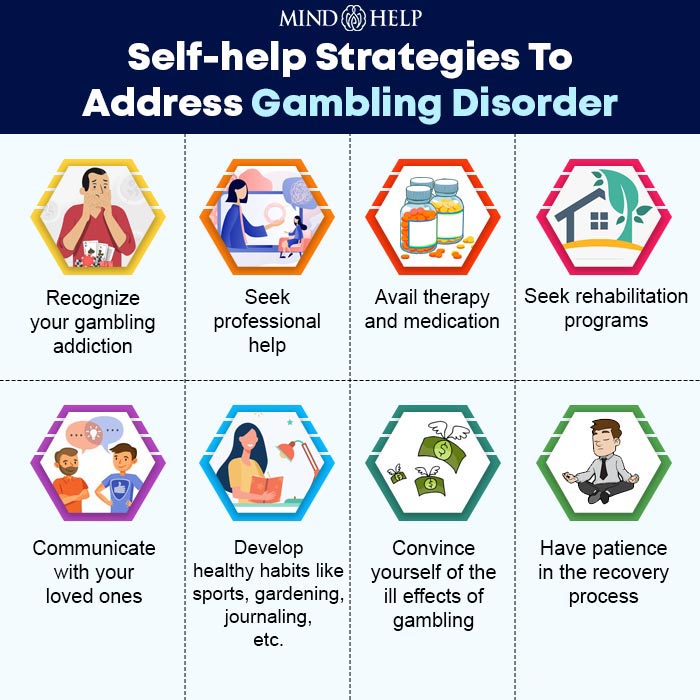
Apart from therapy and medication, certain self-help strategies can also help a sufferer overcome compulsive gambling. If you feel that you have a gambling addiction, then it can surely be difficult for you to start the recovery process, especially if you have lost money and relationships.
However, it is possible to control your urges and self-soothe difficult emotions that lead to unhealthy addictions. Here are a few self-help tips to consider:
1. Cope with unpleasant feelings
Most people take up gambling as a way to cope with stress or to numb unpleasant thoughts and emotions. By learning to face these difficult emotions and unwinding healthily, you can control your urge to gamble. Try engaging in healthy activities that reduce boredom and elevate moods like:
- Sports
- Learning new skills
- Pursuing a hobby
- Volunteering to help the needy
- Practicing meditation and other relaxation techniques, etc.
2. Have a strong support network
You need to realize that you are not alone. You can always reach out to your family and friends to seek help and support for overcoming your gambling addiction. With support from loved ones, the journey towards recovery will be smoother, faster, and more effective.
3. Join a support group
Your local support groups may have certain programs that can empower you to deal with gambling addiction. Support groups, like Gamblers Anonymous, can provide you beneficial guidance and help you remain addiction-free.
4. Identify other underlying conditions
Gambling addiction is often associated with various mental health conditions, like stress, anxiety disorder, depression, and substance abuse. These issues can make your gambling problem worse and recovery impossible. Hence, it is crucial to diagnose and treat such underlying conditions under the guidance of a doctor.
Here are some other things that you need to remember:
- Choose healthier alternatives for your addiction
- Avoid loneliness and isolation. Socialize with friends and family who do not gamble
- Postpone your urge to gamble by a few minutes or hours until the desire passes
- Visualize the negative consequences of gambling and how terrible it makes you feel
- Engage in other activities, like watching movies, exercising, taking a dance class, etc
How To Help Someone With Gambling Addiction?
If your loved one is suffering from a gambling disorder, you are likely to have many contrasting emotions. You have probably spent a lot of time and energy helping your loved one stay away from gambling or to cover for them.
However, as they may relapse, you may feel disappointed or angry at them. They may have borrowed or even stolen money with no intention of paying back.
While a person suffering from gambling disorder needs the support of their family and friends to help them in their struggle, the decision to stop has to be theirs. You might try hard enough to stop your loved one from gambling, but at the end of the day, the final decision lies in their hands.
However, as a family member or a close person, encourage them to seek help, support them in their endeavors to quit, protect yourself, and talk to them to stop them from attempting anything heinous.
Here are a few helpful tips for family members with someone suffering from gambling disorder:
1. Help yourself first
When you have a family member struggling with gambling addiction, the first thing you need to do is to protect yourself, mentally, emotionally, and financially. You can feel exhausted and experience burnout if you ignore your own emotional needs during the process.
2. Seek support
Realize that you don’t have to fight this by yourself. Reach out for support from your relatives and friends. You can also connect with families who have struggled with similar problems or ask your local support groups to help you out. Do not blame or doubt yourself, feel guilty, or rationalize their behavior.
3. Set financial boundaries
Start managing the finances for your family as this will make the sufferer more accountable. However, you don’t need to micromanage every single aspect of the household or feel responsible to manage the urges of the pathological gambler. Make protecting your finances and reducing debt your top priority.
4. Learn to say no
Compulsive gamblers are prone to asking for money constantly. You need to find a way to deny their requests politely so that they don’t resort to stealing or borrowing money from others. Do not enable them even though they may manipulate or threaten you.
Preventing Gambling Disorder
Here are a few Dos and Don’ts that caregivers, family members, or partners of people suffering from compulsive gambling should keep in mind:
1. Things to do:
- Seek help from others who have experienced similar problems
- Join a local or online self-help group for families
- Identify all the good qualities that the sufferer may have
- Speak with the sufferer about his/her gambling addiction and the consequences in a patient and calm way
- Make them realize how the gambling disorder is affecting you and let him/her know that you are trying to help yourself as well
- Talk to the children about the problems associated with compulsive gambling
- Recognize the importance of treatment irrespective of the time involved and encourage the sufferer to seek professional help
- Set healthy boundaries regarding money, examine bank and credit card statements, and take charge of family finances
2. Things to avoid:
- Lose temper, preach, give lectures, ultimatums or permit yourself to act out of anger
- Prevent the compulsive gambler from attending family events or activities
- Expect all problems to be solved immediately after the gambling stops or demand instant recovery
- Bail the sufferer out of debt or support their gambling
- Deny or disprove the issue to yourself, other family members, or friends
- Overlook the gambler’s positive traits
Takeaway
If you or someone you know is suffering from a gambling addiction then make sure to seek treatment immediately. Gambling addiction can ruin lives and families if left untreated. Moreover, it can also lead to other addictions and mental health conditions, like stress, anxiety, and depression.
However, with early diagnosis and effective treatment under the supervision of a licensed healthcare professional, a sufferer can successfully overcome the symptoms of this disorder and prevent it from getting worse.
With continued treatment, preventive measures, and certain lifestyle changes, a chronic gambler can fully recover and live a better, happier life.
Gambling Disorder At A Glance
- Gambling addiction or disorder (GD) is a progressive impulse-control disorder that can affect the sufferers’ families and social lives.
- Gambling disorder is a condition defined by an unruly or obstinate urge to keep betting—irrespective of the toll it takes on your life.
- People with gambling adare often found to be alcoholic, depressed, and anxious.
- The addiction to gambling affects 1 to 3% of adults of all ages, with men being more prone to the disorder than women.
- Gambling induces stress, depression, substance use, or denial.
- Apart from therapy and medication, certain self-help strategies can also help a sufferer overcome compulsive gambling.
Frequently Asked Questions (FAQs)
1. How long does it take to beat a gambling addiction?
There is no fixed time frame for overcoming gambling addiction. However, an early diagnosis of the problem—coupled with therapy, medication, and self-help coping techniques—can help you successfully recover from your gambling disorder.
2. How do you recover from gambling addiction?
Recognize and admit that you have a gambling addiction. Then, avail therapy, have medication, and try self-help strategies. Recovering patiently can help you address your gambling addiction.
3. Can you die from gambling addiction?
Unlike alcoholism, gambling disorder does not directly have a detrimental impact on health. But it has been increasingly recognized as a risk factor for mental disorders, self-harm, and suicide.
4. How to help an adult child with gambling addiction?
Start by having an honest conversation with your child and voicing your concerns. Tell him/her outright why gambling addiction is harmful and why he/she should refrain from it. Reaffirm your family values and assist your child in seeking professional help for his/her disorder.
5. Can substance use disorder worsen gambling disorder?
Most of the time, compulsive gamblers are addicted to substances. Such people usually become reckless—increasing the amount and the frequency of their bets.
6. Is there any biological approach to treat gambling disorder?
The most promising treatment for gambling disorder involves pharmacotherapy, particularly the use of opioid receptor antagonist naltrexone. A long-standing treatment for drug addiction and alcoholism, it helps reduce the urges to gamble and related reckless behavior.
7. Who is most likely to have a gambling addiction?
Research 22 Yau, Y. H., & Potenza, M. N. (2015). Gambling disorder and other behavioral addictions: recognition and treatment. Harvard review of psychiatry, 23(2), 134–146. https://doi.org/10.1097/HRP.0000000000000051 claims that males between 25-34 years of age or people belonging to marginalized communities or having substance addiction are more likely to develop a gambling addiction.
8. What psychological and physiological processes lead to gambling disorders?
People who gamble compulsively often suffer from substance misuse problems, personality disorders, depressive disorders, anxiety disorders, mood disorders, ADHD, etc.

